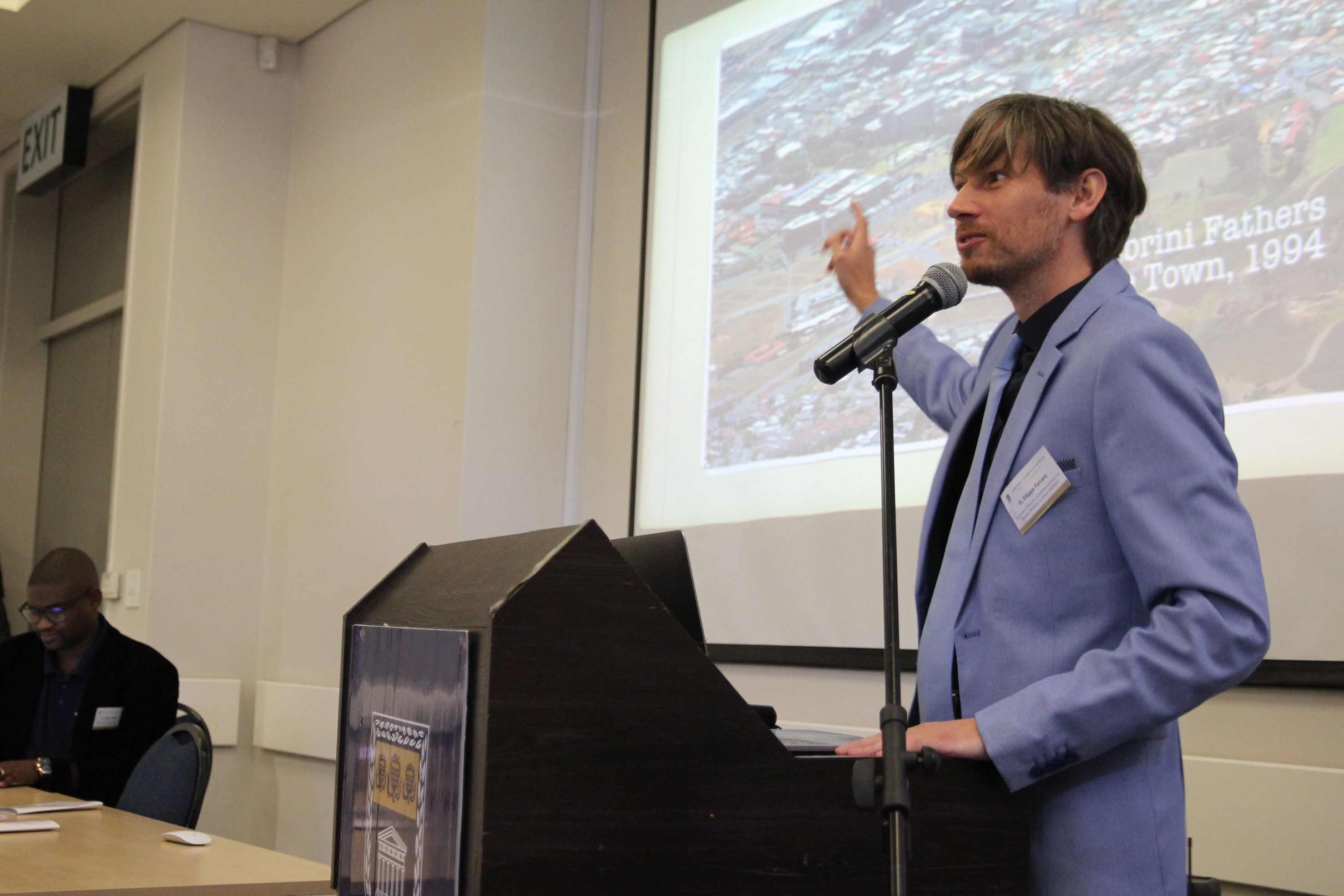
South Africa – Sweden University Forum (SASUF): Migration and Mobilities
On 7 May, 2019, the University of the Western Cape’s (UWC) Research Niche in Migration and Mobilities hosted a special satellite event for the South Africa-Sweden Research and Innovation Week, with the South Africa-Sweden University Forum (SASUF). SASUF is a collaboration between 36 universities in Sweden and South Africa with goals to “strengthen ties between South Africa and Sweden in research, education, and innovation” and to “connect universities with funding agencies, industry, ministries, and society in working towards the UN Sustainable Development Goals.” SASUF “Migration and Mobilities: Engaging with Civil Society in Collaborative Research and Innovation” brought together scholars of various disciplines to discuss their research in order to provide a multifaceted understanding of the complexity of migration. SIHMA was honored not only be invited to the event, but to have the opportunity to present its main vision, goals, and accomplishments.
Purpose:
The Migration and Mobilities program aimed to showcase interdisciplinary research to introduce different perspectives on handling the dynamic issues related to migration. Discussion was geared towards the importance of a collaborative approach among different fields, as well as the meeting of the academic world and the non-academic world. Researchers called into question how scholars should effectively disseminate their work in a manner that would truly educate the public and influence policies. Furthermore, a main goal was to develop further conversations on the various topics of migration and to establish a network among different organisations.
Speakers:
Father Filippo, the Executive Director of SIHMA, in his presentation titled “The active knowledge: A synergy between academy and work in the field, serving people on the move” discussed the mission of SIHMA, as well as the various programs offered at the Scalabrini Study Centre in Cape Town. He emphasized the importance of combining both field practice and research in the study of migration. The overall goals of this work are to overcome mutual prejudices (between those who research and those who work with migrants directly), share knowledge and findings, produce measurable effects in society by changing policies and the mindset of the public, and work for the good of migrants. Further, he promoted the African Human Mobility Review (AHMR), an interdisciplinary, peer reviewed online journal established in 2014 in collaboration with UWC.
The event included three other speakers, all from various disciplines, including Professor Mulugeta Dinababo, Acting Director of the Institute for Social Development at UWC and Chief Editor of the AHMR, Professor Daniel Tevera from the UWC Department of Geography, Professor Gabriel Tati from the UWC Department of Statistics and Population Studies, and Professor Cecilia Christersson from Malmo University in Sweden. Each speaker presented a brief synopsis of their research and activities, as well as improvements and actions they believe need to be taken to better address migration related issues. Prof. Dinbabo discussed the analysis of researchers’ experiences, focusing on gaps in research and an agenda to better influence policy on international migration in Sub-Saharan Africa. Prof. Tevera’s research focused on the influx of Zimbabwean migrants to South Africa following the crisis beginning in 2000, and the corresponding xenophobic attacks on foreign owned businesses. Prof. Tati’s presentation narrated his perspective on research and policy over his years of study. He focused on some key points regarding the best ways academia should approach research in a collaborative manner. Prof. Christersson discussed the importance of policies to protect the rights of education for migrants. She stressed the need to change the academia approach in order to establish a “co-creation of knowledge for social innovation”.
Conclusion and Main Themes:
The Migration and Mobilities satellite event successfully expressed the importance of bringing together multiple disciplines to collectively approach migration and human mobility. Furthermore, speakers stressed how the academic approach, the “ivory tower” attitude, must change. Researchers and scholars must make their work accessible, useful, and minimally complex in order to educate the public and to change policies related to migration. There must be an active collaboration among field workers and researchers. Both perspectives and the unique knowledge of each type of work is needed to create solutions for the dynamic issues related to migration. Attendees were left with the understanding that in order to make a difference in the field, actors must conduct better research, establish better networks, and collaborate effectively with all stakeholders.
Emma M. Dionne, 14 May 2019
Categories:
Tags:




